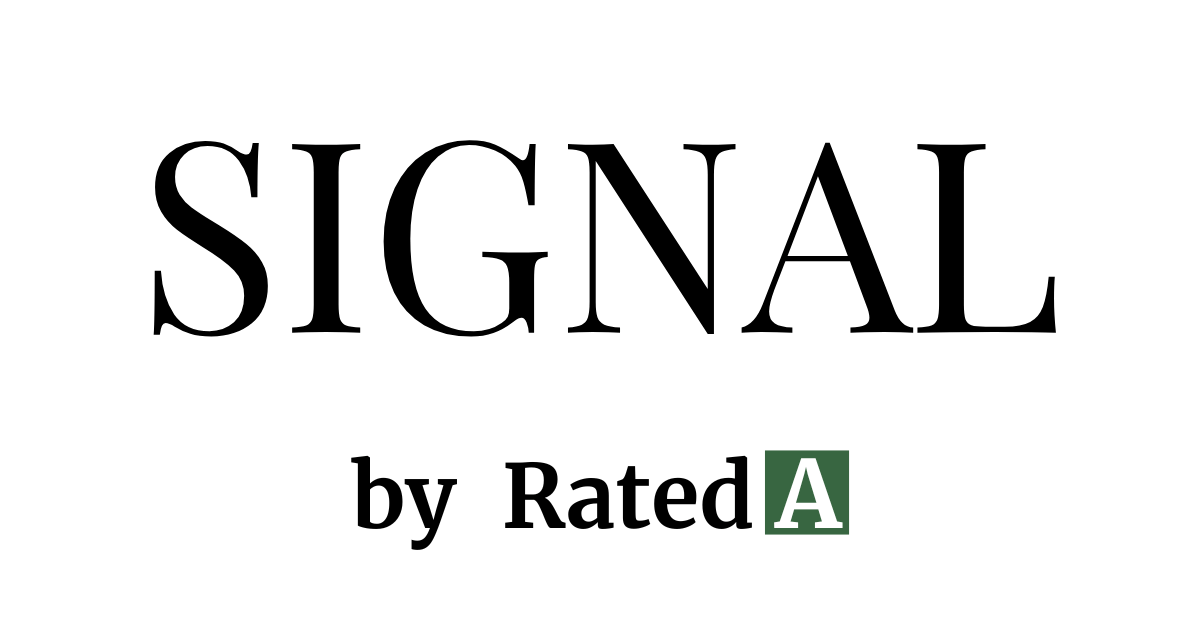
Top of the morning. Welcome to the very first issue #1 of Signal! We’re kicking things off by talking about the most valuable (and least talked-about) skill in investing: knowing when not to trust what you hear. Let’s get into it →
In this issue:
Stop looking for the “right” advice
Written by Camille

How do you analyse a business?
What makes a good investment?
How do you become a great investor?
There are a million ways to answer these questions. And there are a million voices shouting over each other, each trying to be louder than the next just to catch your attention. One expert will tell you one thing; another will insist you should ignore that entirely and do the exact opposite.
Who’s right? Who’s telling the truth? And since you’re here reading this, why should you trust me? Why should you believe anything I have to say?
Do not trust me.
Let me put it this way. If I started by saying, “Trust me, I’m right and everyone else is wrong,” I’d be contradicting the same idea I’m trying to convey.
That’s like a guitar teacher telling you: “The secret to playing well is to just listen to me play.” Instead, my message is the following:
If you stick around and pay attention to the things I share, you’ll start building the mental models you need to figure out (for yourself) what’s worth listening to and what’s not. What’s correct and what’s not.
Ever thought about starting your own business? Or investing in the stock market?
Here’s the harsh reality: nobody can hand you the answers. You’ve got to dig in, figure things out for yourself, and understand an investment so well that you can stand in a crowded market and confidently say, “I see it differently.”
Yes, a great investor has the ability to crunch numbers, but also the conviction to trust their own judgement even when the rest of the world disagrees.
You simply cannot outsource that. You can borrow ideas, you can learn from others, but the conviction? The confidence? That’s yours to build. Let me give you three reasons why.
1. There are many ways to make money.

In the stock market, it’s a buffet. You’ve got short-term news trades, momentum plays, swing trades, long-term buy-and-hold, value investing, quality investing, dividend compounding, options contracts, day trading, technical chart reading… and that’s just the appetisers.
There are people who’ve built fortunes with almost any one of these strategies. There are even more who’ve built fortunes selling courses on these strategies. I’ll admit, it can all look very appetising.
But I hate to break it to you: you’re not them. You’re you. And sooner or later, you’ll need to figure out what works best for you.
What fits your personality, your schedule, your tolerance for risk, your patience level? If you pick a strategy just because someone else swears by it, you might just be setting yourself up for a very quick and very expensive disappointment.
2. Everybody has an incentive.

Charlie Munger once said: “Show me the incentive, and I’ll show you the outcome.” Simple. Brutal. True.
Think about it.
Anybody on social media? Their incentive is to get clicks, followers, or sell whatever they’re pushing. Fear, hype, and the promise of quick riches do that really well.
A fund manager? Their incentive is to gather more assets under management. Their pay cheque usually grows with the size of the portfolio, not with the actual results they deliver.
Your financial advisor? Their incentive might be to keep you just confused enough to think they’re pulling off magic behind the curtain. The less you understand, the more you feel you “need” them.
At the end of the day, nobody will ever care about your money as much as you do. Which means you’ve got to be informed enough to spot when someone’s advice is bad for you.
3. Disagreement is a superpower.

In the stock market, it’s a lot like betting on sports.
If everyone thinks the same team is going to win, the odds get terrible. You can be “right” and still barely make any money because the price has already baked in all that optimism.
The magic happens when you see something everyone else misses. It’s like spotting that the underdog’s star player is secretly healthy again, while the crowd is still betting against them. If you’re right, the odds are stacked for you, not against you.
The biggest wins come from seeing what others can’t (or won’t) see, and having the guts to back yourself when the crowd is screaming the opposite.
Sure, it’s uncomfortable. Nobody likes being the only penguin waddling the other way. But if you’ve done the work and built the conviction, that’s where the real wins live.
In conclusion.
The point here? Become a skeptic.
When you’re asking big questions like “How should I invest?” the worst thing you can do is blindly trust somebody’s answer. Mine included. That’s the fast lane to losing money in business and investing.
Instead, hunt for your own truth. Build your own conviction so you can stand on it when everyone else is swaying with the wind. I’ll say it one more time: you cannot outsource this.
Inside RatedA
The trades, the ratings, and the thinking, straight from the RatedA desk.
Rating Updates
Markets change. Businesses change. Our ratings change with them. In the past two weeks, one company slipped, one held steady, and a one joined the RatedA database for the first time.
Automatic Data Processing: Downgrade
Microsoft: Maintained
L’Oréal: Initiated
We track how our Quality Ratings perform over time to see if higher-rated companies actually deliver stronger returns. Each rating category’s results are measured over a year and compared to the MSCI World Index, then refreshed annually when we update ratings.

Portfolio Updates
We put our own money where our ratings are. The RatedA portfolio is a focused collection of high-quality, cash-flowing companies picked using our own methodology.

In the past two weeks, we opened a small starter position in a company we’ve been circling for months.
That’s where the free version ends. From here on, it’s members-only: portfolio moves and the full thinking behind every decision.

